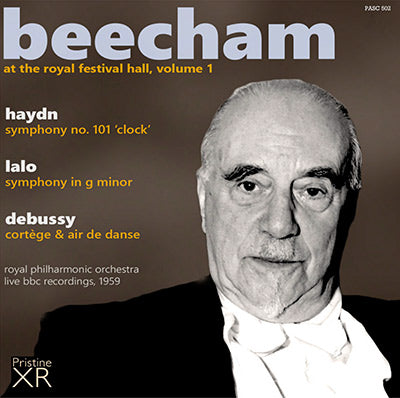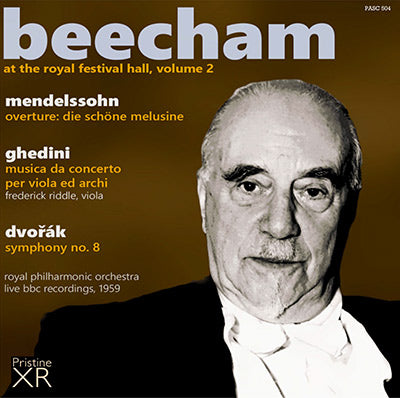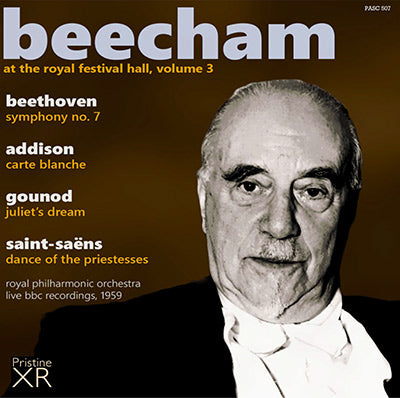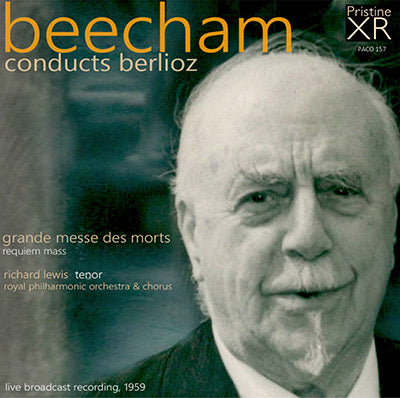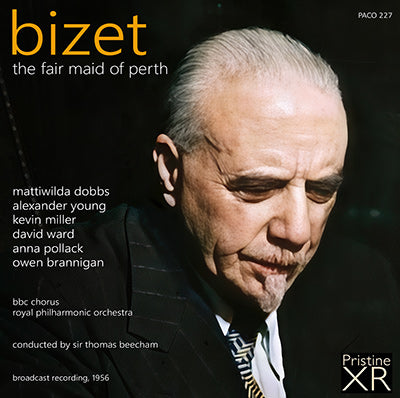Royal Philharmonic Orchestra
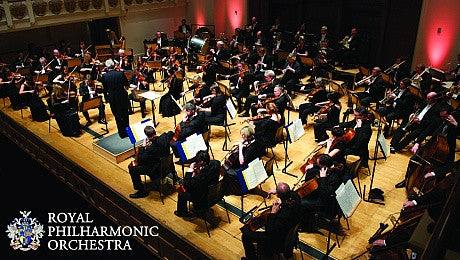
The Royal Philharmonic Orchestra (RPO), based in London, was formed by Sir Thomas Beecham in 1946. In its early days the orchestra secured profitable recording contracts and important engagements including the Glyndebourne Festival Opera and the concerts of the Royal Philharmonic Society. After Beecham's death in 1961 the orchestra's fortunes declined steeply; it battled for survival until the mid-1960s, when its future was secured after an Arts Council report recommended that it should receive public subsidy; a further crisis arose in the same era when it seemed that the orchestra's right to call itself "Royal" could be withdrawn.
Since Beecham's death the RPO has had seven chief conductors, including Rudolf Kempe, Antal Doráti, André Previn and Vladimir Ashkenazy; from 2009 to the present (at 2016) the incumbent has been Charles Dutoit. Others closely associated with the orchestra have included Sir Charles Groves, Sir Charles Mackerras, Peter Maxwell Davies, Yehudi Menuhin and Leopold Stokowski.
In 2004 the orchestra acquired its first permanent London base, at the new Cadogan Hall in Chelsea. The RPO also gives concerts at the Royal Festival Hall, the Royal Albert Hall and venues around the UK and other countries. From its earliest days the orchestra has been active in the recording studios, making film soundtracks and numerous gramophone recordings; many of the LP recordings conducted by Beecham and others have been reissued on compact disc.
In 1932 the conductor Sir Thomas Beecham had founded the London Philharmonic Orchestra (LPO), which, with the backing of rich supporters, he ran until 1940, when finances dried up in wartime. Beecham left to conduct in Australia and then the US; the orchestra continued without him after reorganising itself as a self-governing body. On Beecham's return to England in September 1944 the LPO welcomed him back, and in October they gave a concert together that drew superlatives from the critics. Over the next months Beecham and the orchestra gave further concerts with considerable success, but the LPO players, now their own employers, declined to give him the unfettered control he had exercised in the 1930s. If he were to become chief conductor again it would be as a paid employee of the orchestra. Beecham responded, "I emphatically refuse to be wagged by any orchestra ... I am going to found one more great orchestra to round off my career." In 1945 he conducted the first concert of Walter Legge's new Philharmonia Orchestra, but was not disposed to accept a salaried position from Legge, his former assistant, any more than from his former players in the LPO. His new orchestra to rival the Philharmonia would, he told Legge, be launched in "the most auspicious circumstances and éclat".
In 1946 Beecham reached an agreement with the Royal Philharmonic Society: his new orchestra would replace the LPO at all the Society's concerts. He thus gained the right to name the new ensemble the "Royal Philharmonic Orchestra", an arrangement approved by George VI. Beecham arranged with the Glyndebourne Festival that the RPO should be the resident orchestra at Glyndebourne seasons. He secured backing, including that of record companies in the US as well as Britain, with whom lucrative recording contracts were negotiated.
From the RPO's earliest days to the end of Beecham's life, they made numerous recordings for His Master's Voice, CBS and RCA. Among the works they recorded EMI chose several to be reissued at the end of the twentieth century in its "Great Recordings of the Century" series. They included a Delius programme; a Grieg programme; French ballet music; short works by Bizet, Chabrier, Fauré and Saint-Saëns; Tchaikovsky's Symphony No 4 and Nutcracker Suite; Mozart's Jupiter Symphony, Clarinet Concerto (Brymer) and Bassoon Concerto (Brooke); and Schubert's 3rd, 5th and 6th Symphonies.
After Beecham's death the orchestra made many recordings for Decca, sometimes under pseudonyms such as the "Beecham Symphony Orchestra", the "London Festival Orchestra" and the "Metropolitan Symphony Orchestra". Among the conductors with whom the RPO recorded in the 1960s were Sir John Barbirolli, Fritz Reiner, Charles Munch, Georges Prêtre, Kempe, Previn and Stokowski. Soloists included Earl Wild, Shura Cherkassky, Alan Civil and Luciano Pavarotti.
Igor Stravinsky recorded his opera The Rake's Progress with the RPO in 1964. Colin Davis made some of his earliest recordings with the orchestra, including Mozart and Rossini overtures, Beethoven's Seventh Symphony, and Stravinsky's Oedipus rex. From 1964 to 1979 the RPO was engaged by Decca to record Gilbert and Sullivan operas with the D’Oyly Carte Opera Company. The orchestra has also recorded for Deutsche Grammophon, Lyrita, Philips, Pye and Unicorn-Kanchana.

Royal Philharmonic Orchestra
The Royal Philharmonic Orchestra (RPO), based in London, was formed by Sir Thomas Beecham in 1946. In its early days the orchestra secured profitable recording contracts and important engagements including the Glyndebourne Festival Opera and the concerts of the Royal Philharmonic Society. After Beecham's death in 1961 the orchestra's fortunes declined steeply; it battled for survival until the mid-1960s, when its future was secured after an...
BEECHAM at the Royal Festival Hall, Volume 1: Haydn, Lalo, Debussy
BEECHAM at the Royal Festival Hall, Volume 2: Mendelssohn, Ghedini, Dvořák
BEECHAM at the Royal Festival Hall, Volume 3: Addison, Beethoven, Saint-Saëns, Gounod
Recorded live in 1959
Royal Philharmonic Orchestra
conducted by Sir Thomas Beecham
Save 5% when you purchase all three volumes together
HAYDN Symphony No. 101, "Clock"
LALO Symphony in G minor
DEBUSSY Cortège & Air de Danse from L'enfant prodigue
Recorded live in 1959
Total duration: 58:42
Royal Philharmonic Orchestra
conducted by Sir Thomas Beecham
MENDELSSOHN Overture: The Fair Melusine
GHEDINI Musica da Concerto per Viola ed Archi
DVOŘÁK Symphony No. 8
Recorded live in 1959
Total duration: 70:43
Frederick Riddle, viola
Royal Philharmonic Orchestra
conducted by Sir Thomas Beecham
ADDISON Ballet Suite, Carte Blanche
BEETHOVEN Symphony No. 7
SAINT-SAËNS Dance of the Priestesses (Samson & Delilah)
GOUNOD Juliet's Dream (Romeo and Juliet)
Recorded live in 1959
Total duration: 56:49
Royal Philharmonic Orchestra
conducted by Sir Thomas Beecham
BERLIOZ Grande Messe des Morts (Requiem)
Live broadcast recording, 1959
Total duration: 78:48
Richard Lewis, tenor
Royal Philharmonic Orchestra and Chorus
conducted by Sir Thomas Beecham
BIZET The Fair Maid of Perth
(La jolie fille de Perth, sung in English)
Studio broadcast recording, 1956
Total duration: 2hr 14:39
Catherine Glover - Mattiwilda Dobbs
Henry Smith - Alexander Young
Le Duc de Rothsay - Kevin Miller
Ralph - David Ward
Mab - Anna Pollack
Simon Glover - Owen Brannigan
BBC Chorus
Royal Philharmonic Orchestra
conducted by Sir Thomas Beecham
-
Previous
- Page 1 of 8
- Next


